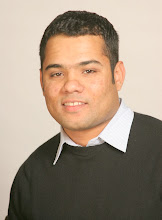Our paper, "Opening up Innovation through Information-Communication Technologies," has been accepted for publication in Research-Technology Management. The authors of the paper are: Yukika Awazu, Bentley College, USA; Peter Baloh, University of Ljubljana, SLOVENIA; Kevin C. Desouza, University of Washington, USA; Christoph H. Wecht, BGW Management Advisory Group, SWITZERLAND; Jeffrey Kim, University of Washington, USA; Sanjeev Jha, University of Illinois at Chicago, USA.
Abstract:
Information Communication Technologies (ICTs) are no longer just for internal use. Rather, in the era of open and distributed innovation ICTs must be leveraged by businesses and organizations to reach, record and review ideas from internal and external sources ranging from vendors, suppliers, customers and employees. Interacting with all stakeholders improves the quality and consistency of ideas. ICTs enable this process at all levels through inclusion and interaction. This paper explores specific ways that ICTs can be used to enable the entire innovation process: from idea generation and development, to experimenting and testing, and finally, to commercialization of ideas.
In particular, ICTs enable management of sources of ideas, documentation of idea histories, distribution and sharing of ideas, market targeting and organic idea development. Successful practitioner examples and specific technologies are discussed in context to outline opportunities and trends in the new era of open, distributed, ICT-enabled innovation. The emerging trend of distributed and open innovation illustrates that customers and users are no longer passively waiting for products. Widely connected, interactive and collaborative practice of innovation will provide a competitive edge to the corporations that carefully select and deploy ICT strategies.
About Research-Technology Management (R-TM)

R-TM is published by the Industrial Research Institute. The Industrial Research Institute (IRI) is the foremost business association of leaders in research and development (R&D) working together to enhance the effectiveness of technological innovation in industry. Founded in 1938 through the National Research Council, IRI comprises senior executives from a diverse range of industries whose Member Companies are investing over $100 billion annually in R&D worldwide. IRI is the leading cross-industry organization providing the R&D community with insights, solutions and best practices in innovation management developed through collaborative knowledge creation.
Research-Technology Management is the award-winning, bi-monthly journal of the Industrial Research Institute, published since 1958. It contains peer-reviewed articles covering the entire spectrum of technological innovation, from research and development through product development to marketing. RTM is a leading source of knowledge and best practices on innovation management for leaders of research, development, and engineering worldwide.


